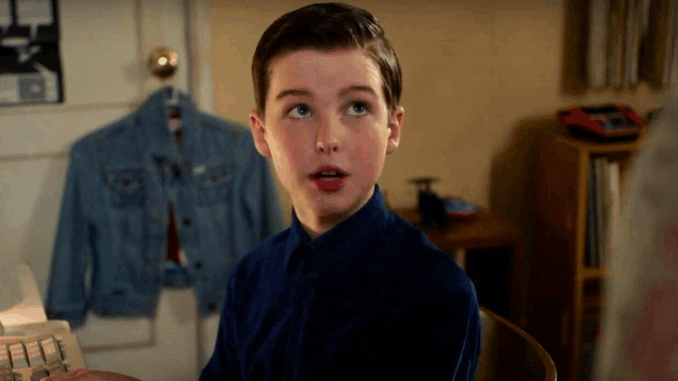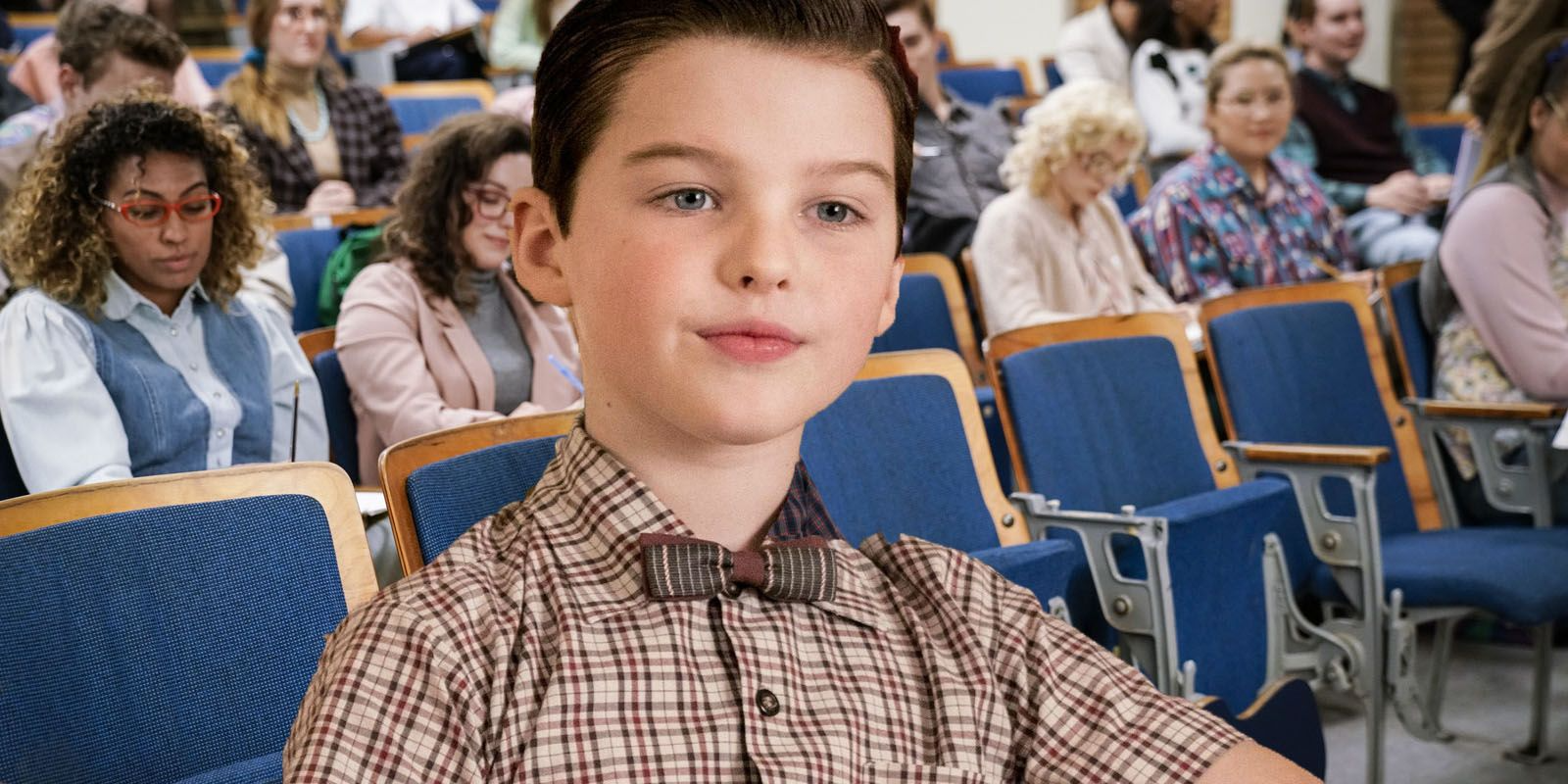
After seven seasons of lovable chaos, heartfelt moments, and unexpected character growth, Young Sheldon aired its emotional finale — and while fans were focused on Sheldon leaving for Caltech and George Sr.’s heartbreaking death, the show quietly pulled off something incredibly clever.
It returned to its original concept, the very one that had been subtly abandoned over the years.
You might have missed it, but the finale of Young Sheldon finally honored the premise that kicked off the entire series: Sheldon’s struggle to grow up different in a world that didn’t understand him.
Let’s Go Back to the Beginning — What Was the Original Premise?
Season 1’s Promise: A Boy Genius in a Not-So-Genius World
When Young Sheldon premiered in 2017, the hook was clear:
What happens when a 9-year-old genius is forced to grow up in small-town Texas among people who can’t relate to him at all?
The show promised to explore:
-
Sheldon’s academic brilliance
-
His social awkwardness
-
The challenges of being too smart for his age
-
His family’s attempts to support (and survive) him
Early episodes leaned into school struggles, alienation, and Sheldon’s inability to fit in with kids or adults.
How the Premise Got Lost Along the Way
The Shift from Sheldon to the Cooper Family
As Young Sheldon progressed, it slowly morphed from a show about a genius kid to a character-driven family sitcom. Not a bad move — fans came to love George Sr., Missy, and Meemaw.
But along the way, the original premise took a back seat:
-
Sheldon’s genius became secondary
-
School life faded into the background
-
More focus was placed on Georgie’s romance, Meemaw’s casino, or family drama
By Season 5 or 6, you could go entire episodes without a single reminder of Sheldon’s academic uniqueness.
So How Did the Finale Bring It Back?
Subtle but Powerful: Sheldon Alone Again
The finale culminates in Sheldon heading off to Caltech — a moment teased since the beginning.
But it’s not just the plot beat that matters — it’s the emotional framing.
As the camera lingers on Sheldon walking through the airport terminal alone, there’s a palpable return to the series’ central question:
What does it really feel like to be different, isolated, and ahead of your time — even when you’re loved?
It’s a lonely shot, reflective, almost haunting. It echoes Sheldon’s very first voiceover in Season 1, when he described how hard it was to be misunderstood.
The Memoir Format Returns to the Spotlight
Jim Parsons, as Adult Sheldon, returns on-screen for the first time since the show began, now writing a memoir — reinforcing the idea that this was always his personal story, told through the lens of memory.
That was a core part of the original premise: Sheldon reflecting on how his early life shaped him.
And suddenly, after years of ensemble storytelling, we’re back in Sheldon’s head.
Missed the Callback? You’re Not Alone
The callback was so subtle, many fans missed it completely.
But eagle-eyed viewers noted:
-
The return of the original theme music
-
The use of narration over reflective visuals
-
The emotional tone reminiscent of Season 1’s bittersweet episodes
-
A final voiceover that directly mirrors his first lines in the pilot
It’s a quiet masterstroke — a finale that looks forward while honoring the past.
Why This Matters for the Show’s Legacy
It Wasn’t Just About Nostalgia — It Was About Closure
By returning to its original premise, Young Sheldon managed to:
-
Complete Sheldon’s arc
-
Reconnect with what made the show unique
-
Bring emotional closure to longtime viewers
-
Show that the boy who struggled to fit in did find a place — even if it’s 1,500 miles away
It wasn’t flashy. It wasn’t loud.
But it was real, honest, and deeply earned.

How This Changes How We View the Series as a Whole
In hindsight, Young Sheldon wasn’t just a comedy or even a family drama — it was a long-form origin story about isolation, growth, and identity.
And the finale re-centers Sheldon as the narrator of his own life, reminding us:
This wasn’t just the story of a family — it was the story of how a boy became a man who would change the world in his own weird, wonderful way.
The Final Scene That Says It All
In the closing moments, we see:
-
Sheldon walking alone through the terminal
-
No grand fanfare, no sitcom-style laugh track
-
Just a quiet exit from one world, and entry into another
It mirrors the Season 1 pilot, where young Sheldon walked into his high school with a briefcase — out of place, nervous, and yet determined.
Full circle. Full arc.
And finally, full respect to the show’s original concept.
FAQs
1. What was Young Sheldon’s original premise?
The show initially focused on a young genius struggling to fit into a world that didn’t understand him — academically and socially.
2. When did the show drift away from that premise?
Around Season 3 or 4, the focus shifted more toward ensemble storytelling and family dynamics, with less emphasis on Sheldon’s school and genius-related challenges.
3. How did the finale bring the original idea back?
By highlighting Sheldon’s isolation as he leaves home for Caltech, using narration, and showing him writing his memoir — reconnecting to the original theme of personal growth and reflection.
4. Was the show better as a family sitcom?
That’s subjective — many fans loved the family-focused seasons, but the finale reminds us that Sheldon’s story was always the heart of the show.
5. Will there be more Young Sheldon content?
Yes! A Georgie and Mandy spinoff has been greenlit by CBS, continuing the Cooper family story — though likely without Sheldon as a main character.
Sometimes it takes the end of a story to truly understand what it was about all along.
And Young Sheldon? It was always Sheldon’s story. We just forgot that for a little while.